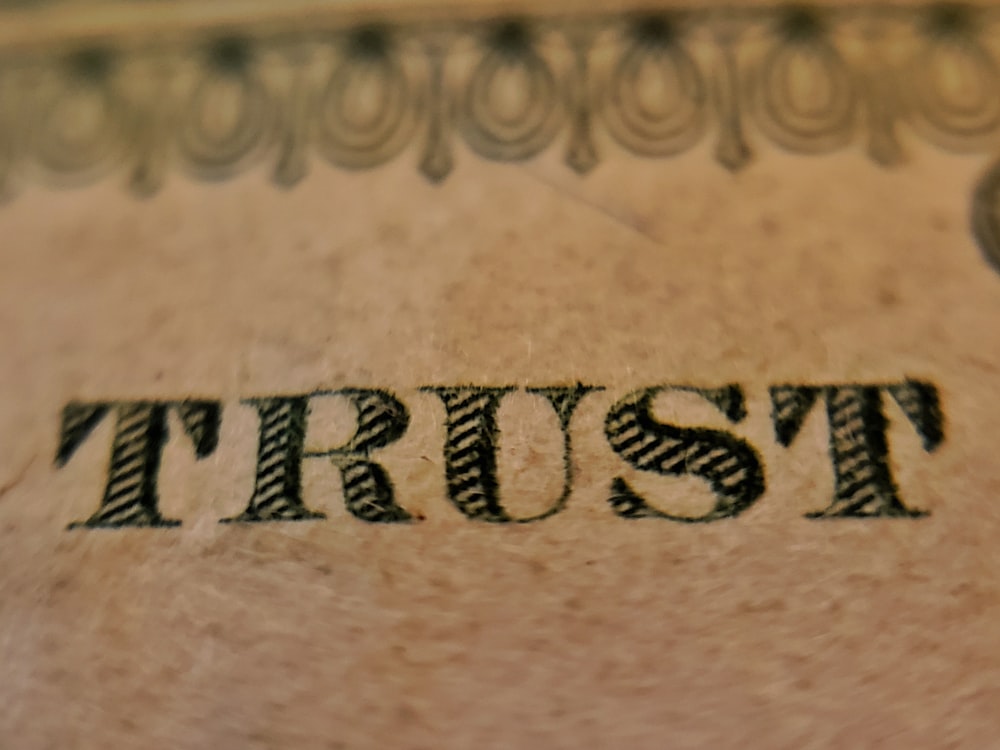TRUSTING IN MYSELF VERSUS TRUSTING IN THE LORD 信靠自己還是信靠神?
Roger D. Campbell
Many of us like the thought of being independent and being able to take care of ourselves
instead of relying on other people. It may be that we do not feel comfortable asking others for help.
Why? We do not want others to think we are weak, and we also do not want to be a burden to anyone.
So, what is our approach? We just rely on ourselvesto get by in life.
我們當中的許多人都喜歡這樣的想法:
獨立,能夠照顧自己,而不是依賴別人。
可能是我們不自在於向別人尋求幫助。
為什麼?我們不希望別人認為我們是軟弱的,我們也不想成為任何人的負擔。
那麼,我們的方法是什麼?我們只能依靠自己,讓自己在生活中過得去。
When it comes to planning our journey through life, including making spiritual and moral decisions, every person is going to trust in someone or something.
Some choose to trust in themselves, others trust in a human leader, while yet others choose to trust in the Lord. In whom or what do you trust? The apostle Paul observed, “. . . we should not trust in ourselves but in God who raises the dead” (2 Corinthians 1:9).
在規劃我們的人生旅程時,包括做出靈性和道德的決定時,每個人都會信任某個人或某件事。
有些人選擇信靠自己,有些人信靠人類領袖,而另一些人選擇信靠主。你信任誰或什麼事物?使徒保羅說:“...我們不靠自己,只靠叫死人復活的神“(哥林多後書1:9)。
If I trust in myself, that really involves an unspoken pride. “I do not need anyone’s help for anything. I am self-sufficient, capable of taking care of myself, and have enough intelligence and common sense to make decisions that are best for me.” Whether they admit it or not, folks who think like that are “lovers of themselves” (2 Timothy 3:2).
如果我信靠自己,那真的牽涉了一種不言而喻的驕傲。“我不需要任何人的幫忙。我是自給自足的,能夠照顧好自己,有足夠的智慧和常識來做出最適合我的決定。” 不管他們承認與否,這樣想的人都是“專顧自己的人”(提摩太后書3:2)。
Before proceeding any further, we should ask: What does God think about people trusting in/relying on themselves? “Thus says the LORD: ‘Cursed is the man who trusts in man and makes flesh his strength’” (Jeremiah 17:5). Again, it is written, “He who trusts in his own heart is a fool” (Proverbs 28:26).
在往下講之前,我們應該問:神如何看待人們信任/依靠自己?“耶和華這樣說:“倚靠人血肉的膀臂,心中離棄耶和華的,那人有禍了!”(耶利米書17:5)。再一次,聖經寫道,“心中自是的,便是愚昧人”(箴言28:26)。
As you probably have observed, multitudes of people trust in material riches (1 Timothy 6:17).
Many who do so trust in their knowledge and power, their thinking being, “All that I have, I owe it to myself and my abilities.” God warned the children of Israel, saying that when they would be blessed with full stomachs, fine houses, and abundant crops, they should not say, “My power and the might of my hand have gained me this wealth” (Deuteronomy 8:17).
正如你可能已經觀察到的,許多人信靠物質的財富(提摩太前書6:17)。
許多這樣做的人,相信他們的知識和力量,他們的想法是:“我所擁有的一切,都歸功於我自己和我的能力。” 神警告以色列人,說當他們有福氣得飽腹、美房、豐收莊稼時,他們不應該說:“這貨財是我力量、我能力得來的。”(申命記8:17)。
The Lord told them, “And you shall remember the LORD your God, for it is He who gives you power to get wealth . . .” (8:18).
耶和華對他們說:“你要記念耶和華你的神,因為得貨財的力量是他給你的……” (8:18).
While trusting in their own goodness, many folks think that by being good enough, that will cause the Lord to be pleased with them. The Lord wants us to be zealous of good works (Titus 2:14), but doing good deeds can never take away a single sin that we have committed (Ephesians 2:8,9).
在相信自己的良善的同時,許多人認為只要自己足夠好,就會使主喜悅他們。主希望我們熱心為善(提多書2:14),但行善永遠不能洗淨我們所犯的任何一個罪(以弗所書2:8, 9)。
God pronounced judgment on the Moabites: “For because you have trusted in your works and your treasures, You also shall be taken” into captivity (Jeremiah 48:7). It is a folly for one who has been righteous in the past to trust in his former righteousness, thinking it guarantees a good, current relationship with the Lord (Ezekiel 33:13).
神對摩押人宣告審判:“你因倚靠自己所做的和自己的財寶必被攻取”(耶利米書48:7)。對於一個信靠自己過去的公義,(而在今日作惡)的人來說,這是愚蠢的,過去的義不能保證今日與主的良好關係(以西結書33:13)。
The Psalmist wrote, “The LORD is my rock and my fortress and my deliverer; my God, my strength, in whom I will trust; my shield and the horn of my salvation, my stronghold” (Psalm 18:2). The Almighty is certainly worthy of our praise and trust!
詩篇的作者寫道:“耶和華是我的巖石,我的山寨,我的救主,我的神,我的磐石,我所投靠的。他是我的盾牌,是拯救我的角,是我的高臺”(詩篇18:2)。全能的神當然值得我們的讚美和信任!
God-pleasing faith involves three aspects: (1) accept the truth/facts that God sets forth, (2) trust in God, and (3) submit to what He says.
Yes, it is possible to trust in the Lord. Hezekiah did (2 Kings 18:5). Holy women of the Old testament era, including Ruth, did, too (1 Peter 3:5; Ruth 2:12).
討神喜悅的信心包括三個方面:(1)接受神所陳述的真理/事實,(2)信靠神,(3)順服祂所說的話。
是的,信靠主是可能的。希西家做到了(列王紀下18:5)。舊約時代的聖潔女子,包括路得,也這樣做了(彼得前書3:5; 路得記2:12)。
To what extent should a child of God trust in Him? “Trust in the LORD with all your heart, and lean not on your own understanding” (Proverbs 3:5). When should we do that? “Trust in Him at all times, you people” (Psalm 62:8). If we want to please our Lord, we need to trust Him completely, all the time.
神的兒女應該在多大程度上信靠祂?“你要專心仰賴耶和華,不可倚靠自己的聰明”(箴言3:5)。我們什麼時候應該這樣做?“你們眾民當時時倚靠他”(詩篇62:8)。如果我們想取悅我們的主,我們需要一直完全信靠祂。
We need to trust in God to know and want what is best for us. He has great and precious promises (2 Peter 1:4), and He is faithful to keep each one of them (1 Corinthians 10:13). We need to trust that He always will keep His promises, such as His pledge to be with us and bless us as we obey Him (Matthew 28:20).
我們需要信靠神,以知道並想要什麼對我們最好的。祂有偉大而寶貴的應許(彼得後書1:4),而且信實地遵守每一個應許(哥林多前書10:13)。我們需要相信祂總是會信守祂的應許,比如祂應許與我們同在,當我們順服祂時也會祝福我們(馬太福音28:20)。
If we put God and His Cause first, He will provide all we need on a daily basis (Matthew 6:32,33). If we truly trust in Him, we have total confidence that He will take care of us. Thus, we will not compromise our moral principles in order to make others happy, regardless of any unpleasant consequences we might have to face.
如果我們把神和祂的事業放在首位,祂將每天供應我們所需要的一切(馬太福音6:32,33)。如果我們真的信靠祂,我們就有完全的信心相信祂會照顧我們。因此,我們不會為了讓別人快樂而妥協我們的道德原則,儘管我們可能不得不面對任何不愉快的後果。
If we truly trust in God, we do it with the whole heart! Are you a half-way, part-time truster in God?
Or, are you an all-in, full-time truster in Him?
如果我們真的信靠神,我們就會全心全意地去信靠祂!你是一個半途而廢、兼職信靠神的人嗎?
或者,你是一個全心全意、全職信靠他的人嗎?

留言
張貼留言